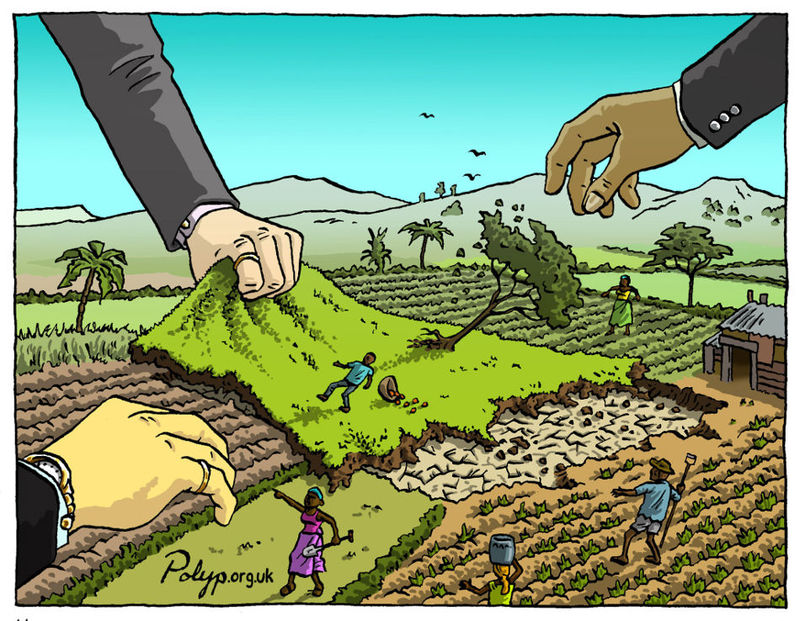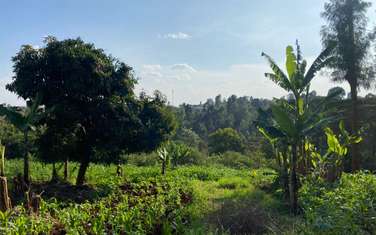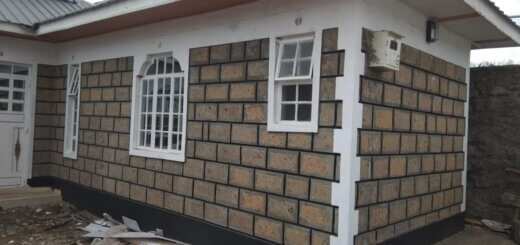Addressing Land Grabbing Issues: Protect Your Investments in Kenya
Land grabbing is one of the most pressing challenges facing Kenya’s real estate and agricultural sectors. This illegal acquisition of land by individuals, corporations, or even government entities threatens property ownership, discourages investments, and undermines economic growth. In a country where land is a critical resource for both personal and commercial development, tackling land grabbing has become essential to safeguarding investments and fostering sustainable growth.
In this article, we’ll explore the root causes of land grabbing, its impact on property investments, and practical strategies to protect your investments in Kenya.

Land grabbing
What Is Land Grabbing?
Land grabbing refers to the unlawful acquisition of land, often through fraudulent means, coercion, or abuse of power. This phenomenon is fueled by Kenya’s high demand for land, population growth, and weak enforcement of property laws. Land grabbing cases range from encroachment on private property to illegal allocation of public land.
The term “land grabbing” is not limited to rural areas; it also affects urban and peri-urban regions, where prime real estate is highly sought after for residential and commercial developments.
Causes of Land Grabbing in Kenya
Understanding the root causes of land grabbing is the first step toward addressing the issue.
1. Weak Land Governance and Corruption
- Inefficient land administration systems and corrupt practices create loopholes for fraudulent transactions.
- Bribery within land offices and among government officials enables illegal title deed issuance.
2. Population Growth and Urbanization
- Kenya’s population growth, particularly in urban areas, has intensified competition for land, fueling disputes and illegal acquisitions.
- Rapid urbanization increases the demand for land in cities like Nairobi, Kisumu, and Mombasa, making them hotspots for land grabbing.
3. Ineffective Land Policies
- Gaps in the implementation of land reforms, such as those outlined in the 2010 Constitution, have left many landowners vulnerable.
- Poor documentation of land ownership, especially in rural and communal areas, makes it easier for land grabbers to target unsuspecting individuals.
4. Historical Land Injustices
- Colonial-era land allocations and post-independence land disputes have created unresolved grievances, which are exploited by land grabbers.
The Impact of Land Grabbing on Investments
Land grabbing has far-reaching implications for individual and corporate investors:
1. Legal Disputes and Financial Losses
- Victims of land grabbing often face lengthy and expensive court battles to reclaim their property.
- Fraudulent transactions can lead to significant financial losses, especially if the land was purchased at market value.
2. Erosion of Investor Confidence
- Frequent land grabbing cases discourage both local and foreign investors from venturing into Kenya’s real estate market.
- Investors may shy away from large-scale projects due to fears of encroachment or disputes over land ownership.
3. Stalled Development Projects
- Land disputes can delay or halt construction projects, leading to missed opportunities and economic stagnation.
4. Negative Social and Environmental Impacts
- Displacement of communities and loss of livelihoods are common outcomes of land grabbing.
- Environmental degradation may occur when grabbed land is misused or overexploited.
Steps to Protect Your Investments from Land Grabbing
While land grabbing is a widespread issue, there are proactive measures you can take to safeguard your investments in Kenya:
1. Conduct Thorough Due Diligence
Before purchasing land, ensure that you:
- Verify Ownership: Check the title deed and confirm its authenticity with the Ministry of Lands.
- Search for Encumbrances: Investigate whether the land is free from legal disputes, unpaid taxes, or other claims.
- Engage Professionals: Work with a reputable lawyer, surveyor, or real estate agent to guide you through the process.
2. Register Your Land
Proper registration is crucial in establishing ownership and protecting your land from grabbers.
- Obtain Title Deeds: Ensure that your property is registered under your name and that the title deed is valid.
- Update Records: Regularly update ownership records, especially in cases of inheritance or subdivision.
3. Secure Your Land Physically
Take measures to physically protect your land from encroachment:
- Erect Boundaries: Use fences, walls, or beacons to demarcate your property clearly.
- Install Security Measures: Employ guards, surveillance cameras, or other monitoring systems to deter trespassers.
4. Leverage Technology
Technology can play a significant role in safeguarding your investments:
- Digital Land Registry: Use the government’s eCitizen portal to verify land records and avoid fraudulent transactions.
- Blockchain Solutions: Emerging technologies like blockchain offer secure and transparent methods for land registration.
5. Engage Local Communities
Building good relationships with neighboring communities can protect your land from disputes:
- Community Involvement: Work with local leaders and residents to establish mutual respect and understanding.
- Corporate Social Responsibility (CSR): For corporate investors, engaging in CSR activities can build goodwill and reduce conflict risks.
6. Advocate for Policy Reforms
Collective action is needed to address systemic issues in land governance:
- Support Land Reforms: Advocate for the implementation of policies that promote transparency and accountability in land administration.
- Report Corruption: Use platforms like the Ethics and Anti-Corruption Commission (EACC) to report bribery or illegal practices.
Legal Framework for Land Protection in Kenya
Kenya has a robust legal framework designed to protect landowners and address land grabbing. Key laws include:
1. The 2010 Constitution
- Recognizes public, private, and community land ownership.
- Provides for equitable access to land and protection of property rights.
2. The Land Act, 2012
- Outlines procedures for land registration, leasing, and transfer.
- Prohibits fraudulent land dealings and prescribes penalties for offenders.
3. The Land Registration Act, 2012
- Establishes a central land registry to improve record-keeping and reduce fraud.
4. The Prevention, Protection, and Assistance to Internally Displaced Persons and Affected Communities Act, 2012
- Protects individuals and communities displaced by land grabbing or illegal evictions.
5. The National Land Commission (NLC)
- Oversees land management and resolves disputes involving public land.
Role of Technology in Combating Land Grabbing
Technological advancements are proving to be effective tools in the fight against land grabbing:
1. Digitized Land Records
- Kenya is digitizing its land registry to make ownership records more accessible and transparent.
- The eCitizen platform allows users to conduct online searches and verify title deeds.
2. Geospatial Mapping
- Satellite imagery and geospatial mapping help identify land boundaries and detect encroachments.
3. Blockchain Technology
- Blockchain offers a secure way to store and verify land records, minimizing fraud and disputes.
Conclusion
Land grabbing remains a significant challenge for property owners and investors in Kenya. However, with proper due diligence, legal safeguards, and proactive measures, you can protect your investments from this menace. The government’s ongoing reforms, coupled with the adoption of technology, are also creating a more secure environment for land transactions.
As an investor, staying informed and vigilant is key to navigating Kenya’s complex land market. By taking these steps, you can safeguard your property, avoid costly disputes, and contribute to a more transparent and equitable real estate sector in Kenya.



